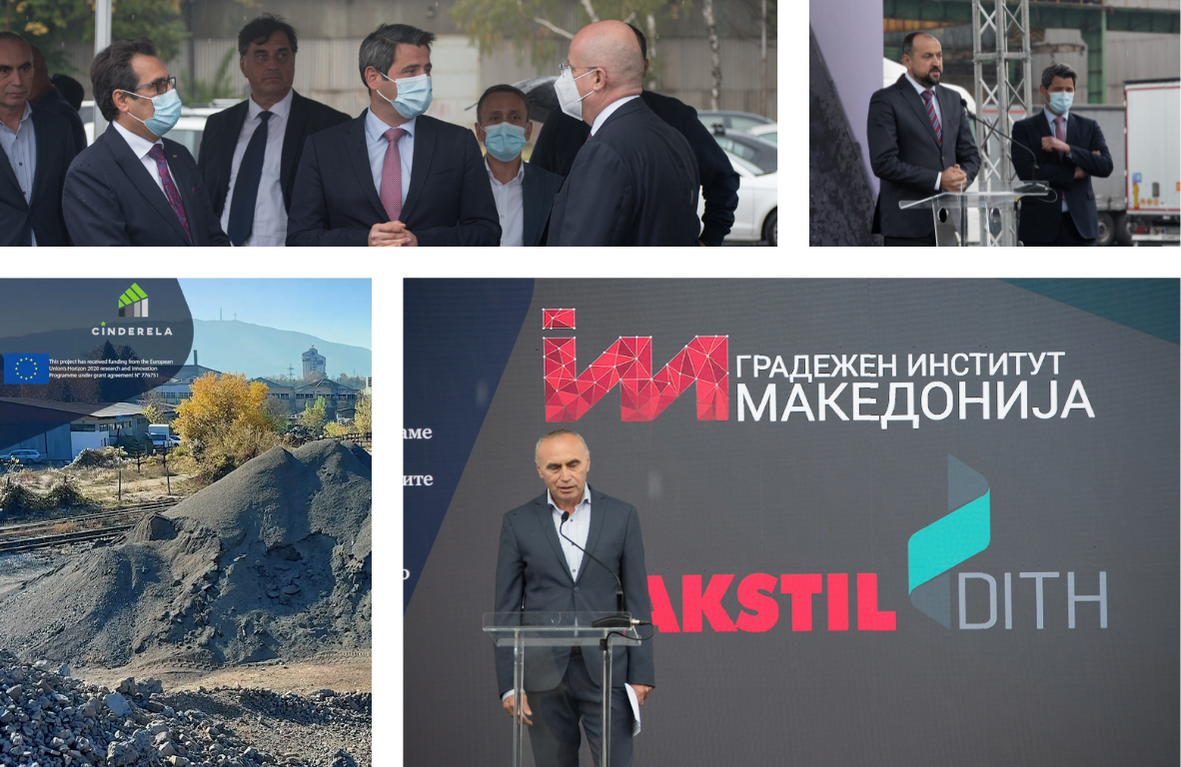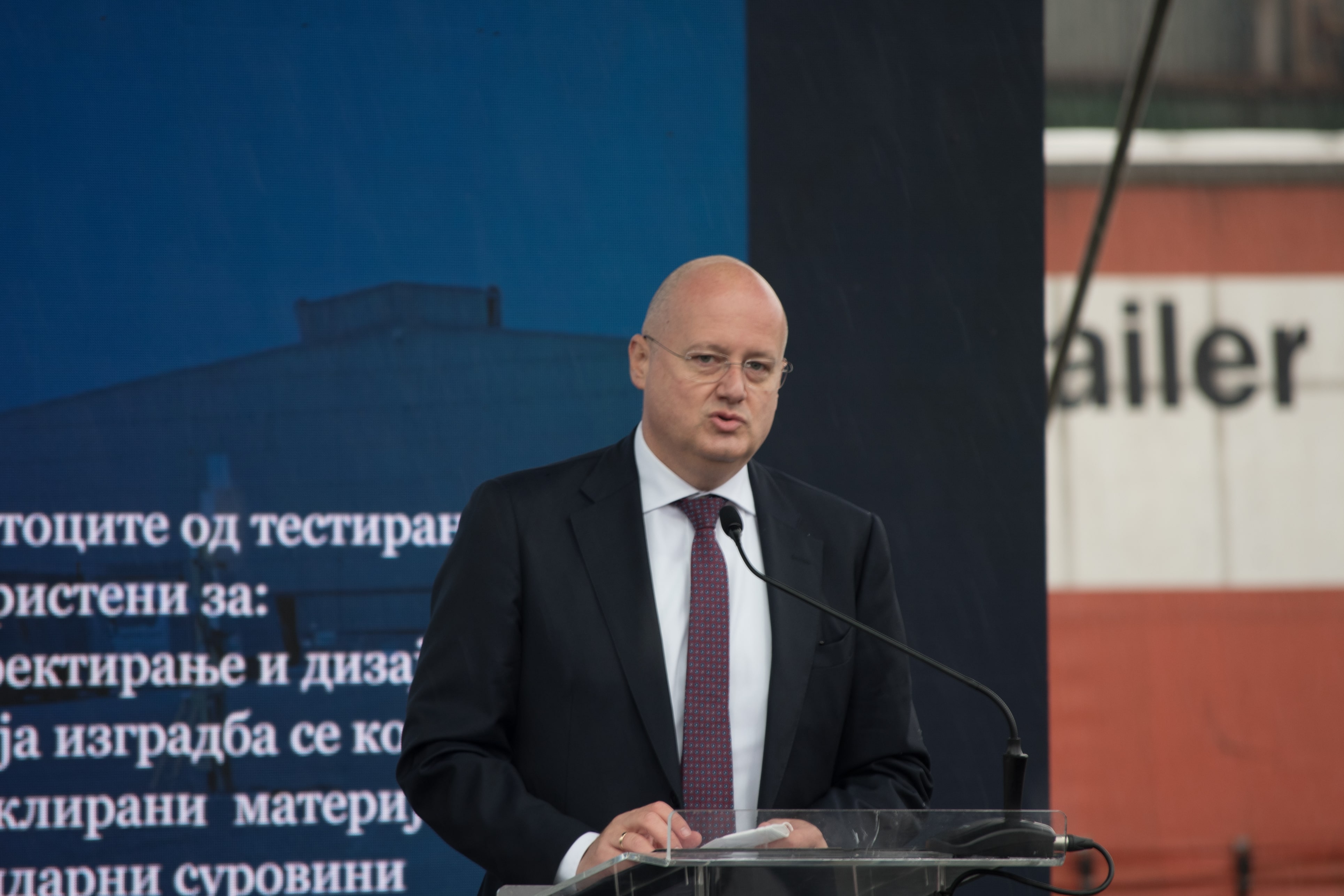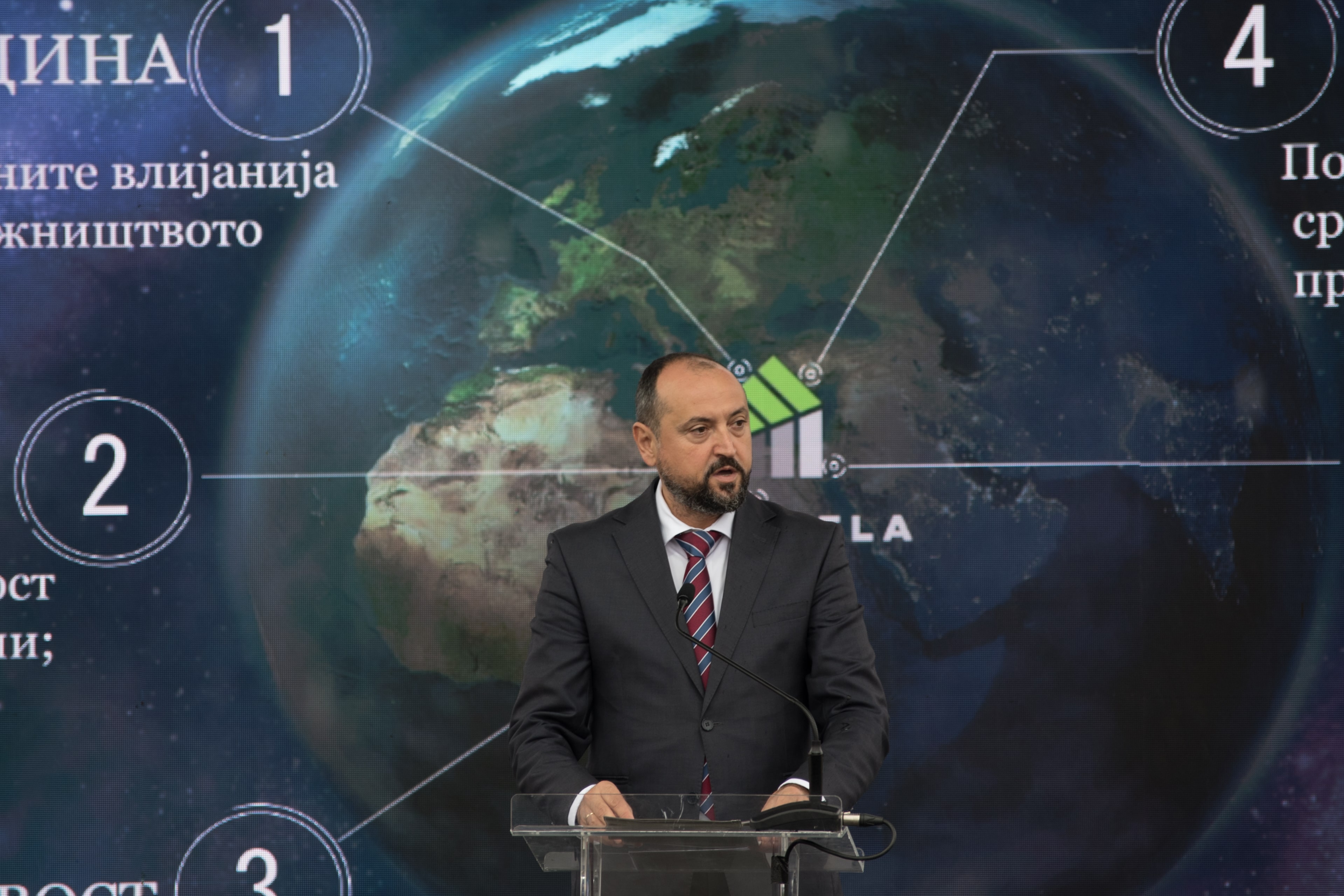CEIM and Makstil presented the results of the CINDERELA project as a model of circular economy
Within the CINDERELA projectin the area of the factory Makstil Skopje, construction materials based on secondary raw material were applied, which is obtained during the process of smelting scrap metal, for revitalization of a degraded space in a parking lot and reconstruction of an access roadas and partition walls made of prefabricated concrete blocks.
These activities, which were presented today at Makstil, represent the realization of part of the project "New business model of circular economy for sustainable urban development and construction - CINDERELA" implemented by the Civil Engineering Institute Macedonia (CEIM)For the realization of some of the activities needed for this project, CEIM signed an agreement for business and technical cooperation with Makstil where a pilot plant for mechanical processing of secondary raw material - slag (black and white) was set up which is obtained as a by-product in the process of smelting scrap metal. in the factory. Previously in the laboratories of UGD ShtipCEIM as well as in other European laboratories, a series of tests were made which proved that such materials originate from the category of inert materials that are not harmful to the environment.
For the construction of the parking lot with an area of 6500 m2 and a street with an area of 2150 m2, as a buffer unit and asphalt unit were used about 11,000 tons of processed black slag, while for the construction of partition walls made in the Factory Karpos,prefabricated concrete blocks made of concrete with the addition of 20 percent white slag as a substitute for cement.

"Makstil closes the circle of the circular economy and achieves the set goal of zero waste. On the output side, apart from our product, the steel sheet, which can be completely recycled and which participates with 85.5% of the output, as by-products we have 10% black slag, 2% white slag, 1.5% covarine (iron oxide) and 1% filter dust. Filter dust is used for further processing (zinc extraction). Part of the smelter returns to our production, the rest is used as a partial replacement of iron ore in blast furnaces. What was left as a secondary raw material was slag (white and black). With this project we solve this last issue. With the obtained certificate for use and the trial use, we prove that this by-product of ours can be fully and safely used further ", said Dimitar Cvetkovski, Chairman of the Board of Directors of Makstil.

CINDERELA is a complex research and innovation project, funded by the European Commission's Horizon 2020 program, based on opportunities to reduce urban industrial waste,which aims to develop and demonstrate a new business model of the circular economy. The project is implemented by a consortium of thirteen outstanding research institutions and organizations from seven European countries, including the Civil Engineering Institute Macedonia.
"Civil Engineering Institute Macedonia with the Cinderela project once again proved the success in the implementation of European projects that in recent years are more and more in our focus. This type of pilot project contributes to the development of knowledge and demonstration of good practices that are essential, encouraging construction companies to build circular business models that would increase their competitiveness by offering more sustainable services. With this project, we once again confirm the concept of responsible social action by respecting the concept of sustainability ", said Vlatko Ivanov, General Director of the Civil Engineering Institute Macedonia.

The goals of the circular economy are aimed at sustainable urban development and the use of secondary raw materials in various fields. This process connects different industries, the construction sector, municipal services, decision makers and the general public.
In his address to the audience, Deputy Prime Minister Bytyqi stressed that the circular economy is one of the ways to maximize the use of available and limited natural resources and to ensure sustainable economic growth and development while reducing carbon dioxide emissions.
"I thank the representatives of GIM and Makstil for the joint work, and I am pleased that our scientific institutions and companies are involved in such, for our occasions, revolutionary projects, which are in a way the beginning of the circular economy, which has a huge potential in the Republic of Northern Macedonia. And today I am really happy that finally, the private sector has started to actively talk about the circular economy and in practice it turns out that it is possible. "However, I regret that as a country we are ten years late in these processes," said the Deputy Prime Minister.

Bytyqi added that if we want intensive and sustainable economic development of the country, for which all stakeholders are undoubtedly committed and committed to that goal, we must invest and establish cooperation, following the example of cooperation between GIM and Makstil and encourage circular economy.
The circular economy as a concept has not only an economic effect but is also the basis of the European Green Plan for environmental protection.
According to the Minister of Environment and Physical Planning Naser Nuredini, this project shows that with a clear plan and commitment, knowledge and implemented experiences from abroad, each company can invest in resources to develop additional activities.
"Using secondary industrial raw material as a building material is an excellent project to reduce the amount of landfilled waste, protects primary resources and at the same time provides a cheaper and faster solution for road reconstruction. I am glad that this innovative solution is the result of scientific cooperation between our and foreign experts, and this shows that we as a country, our private sector, have the capacity to work in a global way. This is how we contribute to the protection of the environment and at the same time we work more economically. Once again, I congratulate Makstil and GIM for being responsible companies and an example of how the private sector should work, with regular measurements, according to standards and new sustainable projects. "The green agenda means development, but in a sustainable way, and this is a real example of that," said Minister Nuredini.


